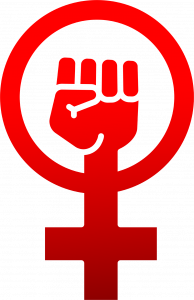IBM and Chief Study Finds Women in Leadership Pipeline has Hollowed Out in the Middle
Advancing women in leadership is not a formal business priority for the majority of organizations surveyed, but there is a…
Advancing women in leadership is not a formal business priority for the majority of organizations surveyed, but there is a roadmap for sustainable progress
The leadership pipeline for women has hollowed out in the middle, according to a new global study “Women in leadership: Why perception outpaces the pipeline—and what to do about it” from the IBM (NYSE: IBM) Institute for Business Value (IBV) and Chief.
The study* of 2,500 organizations in 12 countries and 10 industries found a small increase in the number of women at the C-suite and Board level (now 12% for both), and an increase to 40% representation of women in junior professional/specialist roles (37% in 2021). However, the pipeline for top leadership positions still hasn’t recovered to pre-pandemic levels – 14% representation of women in senior vice president roles (18% in 2019) and 16% in vice president roles (19% in 2019).
In addition, fewer than half (45%) of organizations surveyed report they have made advancing more women into leadership roles a top, formal business priority.
“While we’re pleased to see slight progress in the representation of women at the C-suite and Board levels, it’s imperative that companies do more to fill the pipeline that leads to these powerful positions,” said Lindsay Kaplan, Co-Founder and Chief Brand Officer of Chief. “Women are significantly underrepresented at nearly every level of the workforce. If companies prioritize gender diversity across their entire organizations through policies, investments, and a culture that meaningfully supports women, we’ll see a transformative impact — equity for everyone in the workplace and stronger, more resilient businesses.”
“Enabling equity and inclusion gives organizations a competitive edge, yet many companies do not act as if their success depends on it,” said Kelly Chambliss, Senior Vice President and COO, IBM Consulting. “To thrive in a rapidly changing world, organizations must prioritize advancing women – and all historically under-represented groups – and take action to challenge structural barriers and unconscious bias.”
The study also found:
“The research data shows the hollowing out in the middle is real,” said Salima Lin, Sr. Partner and Vice President of Strategy, Transformation and Thought Leadership, IBM Consulting. “Structural changes, including reimagining leadership tracks and role descriptions, improving pay transparency, and setting representation goals, can open new pathways for women to progress to more senior roles.”
The study also presents a roadmap for sustainable progress based on leadership practices gathered from the research findings, including:
To view the full study, visit: https://ibm.co/women-leadership-2023
*Study Methodology
The global study, conducted by the IBM Institute for Business Value and Chief in cooperation with Oxford Economics, surveyed 2,500 executives, managers, and professionals—an equal number of women and men—from organizations in 12 countries and 10 industries. It follows IBM studies from 2021 and 2019 that surveyed respondents representing the same range of roles, industries and regions to allow for longitudinal analysis.
About the IBM Institute for Business Value
The IBM Institute for Business Value (IBV), IBM’s thought leadership think tank, combines global research and performance data with expertise from industry thinkers and leading academics to deliver insights that make business leaders smarter. For more world-class thought leadership, visit: www.ibm.com/ibv.
About Chief
Chief is a private network designed for the most powerful women executives to strengthen their leadership, magnify their influence, and pave the way to bring others with them. Launched in 2019 by Carolyn Childers and Lindsay Kaplan, Chief’s mission is to drive more women to the top and keep them there. Chief has been recognized as one of Fast Company’s Most Innovative Companies, and its diverse membership includes 20,000 senior women executives. Learn more at chief.com.










